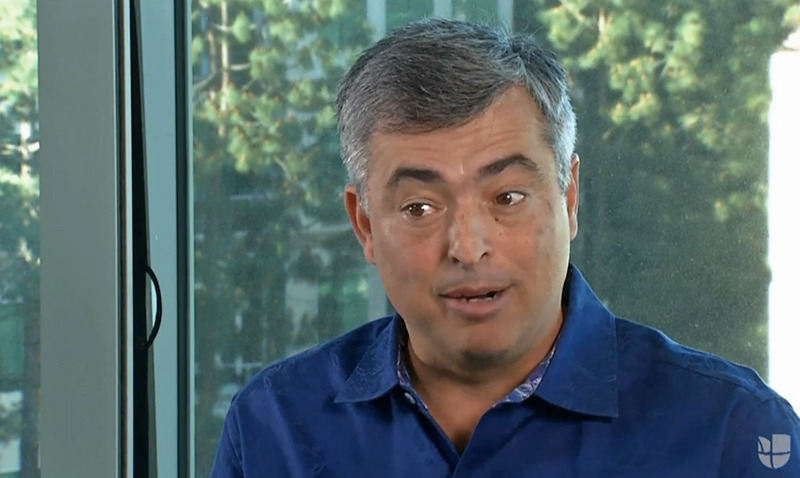Apple SVP of Internet Software and Services Eddy Cue said the government, if successful in compelling Apple's assistance with an FBI investigation involving a passcode-locked iPhone, could one day force the company to participate in clandestine and ethically ambiguous operations, like the remote activation of an iPhone's camera and microphone without user knowledge.
In a recently aired Spanish language interview conducted by Univision, and later reported by Business Insider from a translation provided by Apple, Cue painted a troubling picture of what is at stake in the company's legal battle against the FBI.
Apple sparked a contentious debate on digital encryption in February by resisting a court order compelling it help the FBI in an ongoing investigation into last year's San Bernardino massacre. Fulfilling the government request entails the creation of a flawed version of iOS vulnerable to brute-force attacks, which can then be applied to a passcode-locked iPhone 5c used by terror suspect Syed Rizwan Farook.
"When they can get us to create a new system to do new things, where will it stop?" Cue said. "For example, one day [the FBI] may want us to open your phone's camera, microphone. Those are things we can't do now. But if they can force us to do that, I think that's very bad."
Cue's allegory to a surveillance state echoes cautionary statements heard from Apple CEO Tim Cook, who in an interview last month warned a government win could set a dangerous precedent. Cook also used the iPhone camera example, saying FBI agents might one day ask for remote access to iPhone hardware.
As argued by civil rights activists in an amicus brief last week, the FBI has a less-than-stellar record when it comes to privacy rights. Of note, the agency's notorious Counter Intelligence Program (COINTELPRO) trampled Americans' First Amendment rights by aggressively surveilling groups and individuals deemed subversive. Activated with the Communist Party in mind, COINTELPRO later morphed into a far-reaching apparatus that at one time kept tabs on high-ranking government officials.
When asked whether the government or Apple is doing more to protect individuals, Cue said both sides are moving toward the same goal. He added that while Apple engineers are working to secure its devices against nefarious elements, they cannot do so effectively if the FBI continues to chip away at existing iOS encryption protocols.
On a personal note, Cue said he speaks Spanish with parents, Cubans who immigrated to America for its dedication to civil liberties. The report said Cue intimated that those very rights are at stake with the California encryption case.
 Mikey Campbell
Mikey Campbell




-xl-m.jpg)


-m.jpg)






 Chip Loder
Chip Loder
 Thomas Sibilly
Thomas Sibilly
 Wesley Hilliard
Wesley Hilliard
 Christine McKee
Christine McKee
 Amber Neely
Amber Neely
 William Gallagher
William Gallagher
 Malcolm Owen
Malcolm Owen









45 Comments
And that will be the time I put a tape over camera and microphone.
I trust Apple to move these protections from software into the secure enclave of future A-series chips, so that not even Apple will be able to violate our security.
I have this one friend that has been taping up the camera lens on all of his devices for more than a decade at least.
I always thought that that was kind of paranoid and a bit extreme, but who knows, maybe not. Maybe he was onto something there. :#
Was waiting for the next Apple exec. to chime in.
Guessing Schiller will be next.
Why is Apple doing interviews with Univison? They need Spanish speaking people to file an amicus brief with the court?